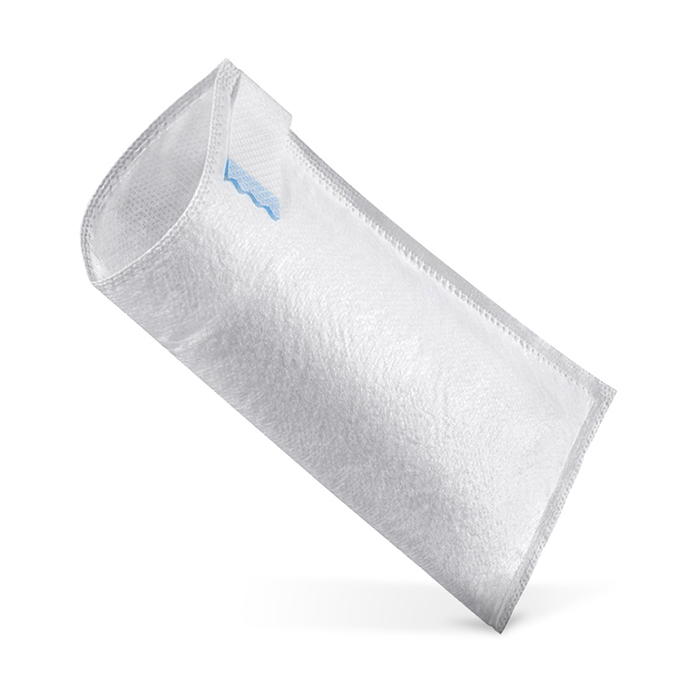How To Do Kegel Exercises For Men
Medically reviewed by Amanda Savage, edited 5th January, 2022.
What is a Kegel exercise?
You’ve probably heard of pelvic floor exercises, or Kegel exercises, used by women to tighten up their pelvic floor after childbirth, or in the case of incontinence. But did you know that they can help men with a whole range of men’s health issues too? Kegel exercises are just as important for men as for women.
Our pelvic floor muscles support the bowels and bladder while also playing a key role in sexual function. So, it’s important we strengthen them. The male pelvic floor is a layer of muscle and other tissues that stretch from the tailbone to the pubic bone. It supports the bladder and bowel, with the urine tube and back passage both passing through the pelvic floor muscles. It also helps men last that little bit longer.
While pelvic muscles are often associated with treating urinary incontinence among those who’ve had their prostate removed, there are plenty of benefits to practising strengthening them regularly for all of us.
Here, you’ll find everything you need to know about Kegel exercises for men and how they can improve your health and wellbeing.
Symptoms and causes of a man's weak pelvic floor
First of all, let’s explore common symptoms associated with a weak pelvic floor. These include:
- Bladder leaks with activity, e.g. running, jumping, coughing, and sneezing
- A sudden urge to pass urine
- Leakage of stool from the back passage
- Erectile dysfunction
Weak pelvic floor muscles can be caused by a number of factors, including:
- Chronic cough
- Constipation
- Being overweight
- Pelvic trauma or surgery
- Prostate surgery
- Repeated heavy lifting
But, pelvic floor muscle strength can be improved and maintained just like any other muscle in the body.
Benefits of Kegel exercises for men
While research suggests men who have undergone a prostatectomy will benefit from Kegel exercises to stop stress incontinence, it has a range of other benefits – from trivial to life-changing.
By strengthening your pelvic floor through regularly performing pelvic floor exercises, it’s possible to:
- Improve bowel and bladder control – meaning less chance of leaking urine and stool or passing wind
- Help the bladder and bowel empty fully
- Increase social confidence and overall wellbeing
- Last that little bit longer during sexual intercourse
- Prevent and reduce pelvic pain
- Improve and maintain healthy erectile function
- Prevent premature ejaculations
- Naturally boost intimate sensations
By performing pelvic floor exercises, a man can help to improve his overall prostate health. As you exercise, the muscle contractions massage the prostate, helping to remove harmful toxins which can build up inside.
Kegel exercises not only help improve everyday bodily functions, but they can also kick your sex life into gear…
Do Kegel exercises improve erections?
Yes, they can. Kegel exercises are proven to stimulate and boost blood flow to the groin – which happens naturally during sex.
Kegel exercises are now the NHS-recommended first-line of treatment for erectile dysfunction. Medical evidence shows that six months of these exercises are as effective as prescribed medication.
Studies show a strong pelvic floor can lead to harder and longer-lasting erections and give men greater control over ejaculation.
At Kegel8, we know erectile issues and premature ejaculation can not only knock confidence but even be a setback in romantic relationships. But it’s important to remember they’re extremely common and you’re not alone if they are affecting your sex life.
When to do male Kegel exercises
As with any healthy lifestyle change, it’s important to start performing Kegel exercises from a young age.
Because pelvic floor muscles naturally weaken over time – from everyday tasks like heavy lifting, persistent coughing and general ageing – the stronger and more resilient your pelvic floor, the easier it is to protect against incontinence or sexual complications.
The beauty of Kegel exercises is that you can do them anywhere. Whether you’re sitting, standing, walking or running – simply contracting your Kegel muscles at regular intervals helps strengthen them.
How often should I do Kegel exercises?
It’s recommended to perform Kegel exercises in two-minute spells – alternating between contracting and resting every 10 seconds. Try these two to three times a day to start feeling notable improvements in your pelvic floor strength. If this is a stretch focus on good quality repetitions, aiming for three sets as you become stronger.
Depending on how comfortable you feel, aim for around 10-20 repetitions. This may feel like too much for some people at the start, but don’t give up – it’s all part of building your strength.
Will my urine leakage stop if I do Kegel exercises?
A weak pelvic floor is one of the main causes of urine leakage in men. Your pelvic floor is responsible for squeezing your bladder when it’s time to go to the toilet, so if it’s strong, you will be able to go longer between toilet breaks and empty your bladder fully when it’s time to go. Kegel exercises are one of the most effective ways to control your bladder, without taking additional prescription drugs or undergoing surgery.
However, complications with the prostate can also cause leaking issues. Whether it’s a benign enlargement, prostate infection, or something more serious, an inflamed prostate could be causing you problems with urinary incontinence.
Around 8% of men who’ve undergone a prostatectomy will develop some form of urinary incontinence. But the good news is that most regain bladder control with Kegel exercises over time.
When will I see results from Kegel exercises?
You can begin to feel noticeable improvements in your pelvic floor in as little as three to six weeks if you stay regular with Kegel exercises.
If it does take a little longer, don’t be discouraged. Consistency is key, and it may be some months before you begin to feel significant changes.
Finding your pelvic muscles
If you’re new to male Kegel exercises, it can be tricky to know whether you’re doing them correctly and using the right muscles. To make sure you’re getting the most out of your pelvic floor exercises, follow our steps to finding your pelvic muscles:
- Pelvic floor muscles act as a ‘hammock’ for our pelvic organs. To find them, firstly sit, stand or lie somewhere comfortable. You’ll need to relax your thighs, buttocks and tummy.
- Tighten the muscles around your anus as if you’re trying to control wind – then relax. Try not to squeeze your buttocks together or clench your tummy or thigh muscles, though.
- Now imagine you’re passing urine – try to stop mid-flow and then start again. Don’t do this while you’re actually passing urine, as this can cause problems down the line.
- You can check you’re using the right muscles by placing your fingertips on the skin behind the scrotum. If you’re using the right muscles, you’ll feel the muscles lift away from your fingers each time you tighten the muscles.
Slow pelvic floor exercises for men
A mix of slow and fast Kegel exercises can help men strengthen and control their muscles better. For slower pelvic floor exercises, simply:
- Tense the muscles slowly, so that you can feel a lifting sensation.
- Try to hold this for ten seconds – but don’t forget to breathe!
- Slowly relax the muscles and rest for 10 seconds.
- Aim to repeat this around ten times. Don’t worry if you can’t hold the lift for ten seconds at first – you can build up to this.
Fast male pelvic floor exercises
To practise faster pelvic floor exercises:
- Repeat the same action as before, but this time, try tightening the muscles as quickly as you can.
- Hold a strong contraction for 1-2 seconds and then let go.
- Try to do this around ten times.
Whether you’re practising slow or fast reps, try to do these exercises three to six times a day for the best results.
If you’re struggling with these exercises, it may be your muscles are struggling to contract on their own. If this is the case, don’t stress – help is readily available.
Try male pelvic floor exercises with Kegel8 V for Men
The Kegel8 V for Men Pelvic Toner targets the right muscles every time and gives your pelvic floor a thorough workout – strengthening both the ‘fast twitch’ and ‘slow twitch’ pelvic muscle fibres. Discover the benefits below:
- Medically approved
- Electronically strengthens your pelvic floor
- Locates and exercises your pelvic floor muscles
- Programmes devised by physiotherapists
- Bladder and bowel control & improved sexual function
And there’s no need to remember to do your exercises three to six times a day. Simply use your Kegel8 V for Men once a day and the clinically designed programme will do your day’s worth of pelvic floor exercises in just minutes.

Kegel8 V For Men Electronic Pelvic Toner

Kegel8 Pelvic Toner Conductivity Gel & Care Pack

X-Top For Men Incontinence Pouch - Pack of 10

.gif?w=814&h=366&_f=1)


